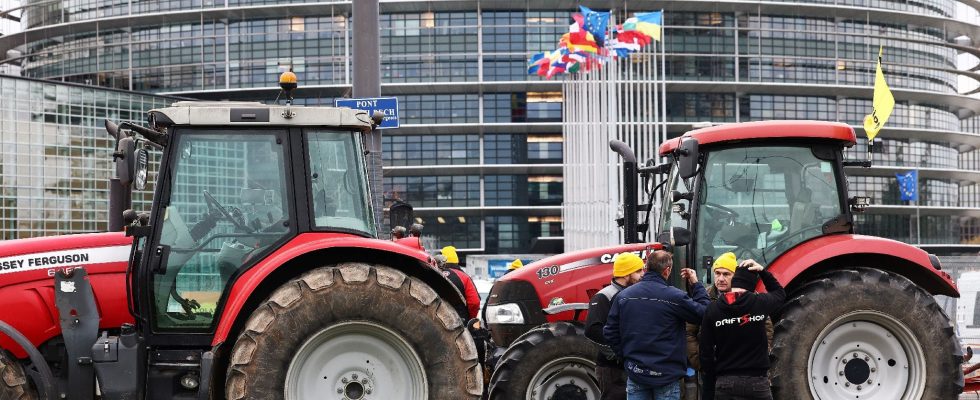Fallows, hedges, crop rotation… The European Commission is backpedaling. On Friday March 15, the European executive proposed legislative revisions. Objective: drastically reduce the environmental rules of the Common Agricultural Policy (CAP), representing a third of the community budget. As a reminder, the new CAP (2023-2027), which entered into force last year, requires farmers to respect a series of strict environmental criteria in exchange for European payments.
Except that as the European elections approach, scheduled for June 6 to 9, and while the far right is well placed to win, the Twenty-Seven are reviewing their priority. In order to appease the anger of European farmers, Brussels is backtracking on its ecological advances. At the risk of cutting green assets into pieces. “The objective is to further reduce the administrative burden, to give farmers and states greater flexibility to comply with certain conditions, without reducing the overall level of environmental ambition,” tries to reassure the President of the European Commission, Ursula von der Leyen.
These proposals aim to greatly relax environmental criteria, or even eliminate some of them, to the great dismay of environmental NGOs. Among the “green” conditions in the spotlight: farms must currently leave at least 4% of arable land fallow or non-productive areas (hedges, groves, ponds, etc.). The Commission had already suspended this criterion temporarily for 2023, then partially for 2024.
The fallow obligation is forgotten
This criterion will now be removed, leaving only the ban on trimming hedges during nesting periods. “It was really difficult for farmers to accept” these fallow obligations, but they can always choose to do so on a voluntary basis in exchange for bonuses (“eco-schemes”), the European Commissioner told AFP. at Agriculture, Janusz Wojciechowski.
Brussels also wants to tackle other “conditionalities” criticized by agricultural organizations, which consider them impractical in the face of climatic hazards and economic difficulties. Brussels would therefore step back on the obligation (which came into force this year) of crop rotation, with a crop different from the previous year on 35% of arable land. It would be replaced by a simple “diversification” of cultures. For the ban on bare floors during sensitive periods, “the idea would be that these periods are not rigid, that the Member State can define them flexibly taking into account regional differences”, underlined Janusz Wojciechowski, in sidelines of a press conference in Poland.
Retroactive measures
Another major change: the Commission proposes to exempt small farms of less than 10 hectares from controls linked to environmental conditions, and from penalties – which represent 65% of CAP beneficiaries, but only cover 9.6% of the surface area. . “The number of farms of this type varies from one country to another, but in Poland, for example, they represent three quarters of all farms,” notes the European Commissioner. Finally, States would no longer be obliged to modify their national “strategic plans” for implementing the CAP according to the evolution of EU environmental and climate legislation. The French Minister of Agriculture, Marc Fesneau, was “delighted with the progress achieved”.
“Most of these changes will come into effect in 2025, but apply retroactively to January 1, 2024, meaning farmers […] will not be sanctioned for not having respected these conditionalities” from this year, continues Janusz Wojciechowski to AFP. These measures will be discussed by the Twenty-Seven at the end of next week, during the summit of March 21 and 22 in the Belgian capital.
For their part, environmental associations denounce an “electoralist” dismantling of the green architecture of the CAP. Without any guarantee of calming the anger of the agricultural community. By letting go, Brussels is offering a gift to farmers. Hoping he’s not poisoned.
